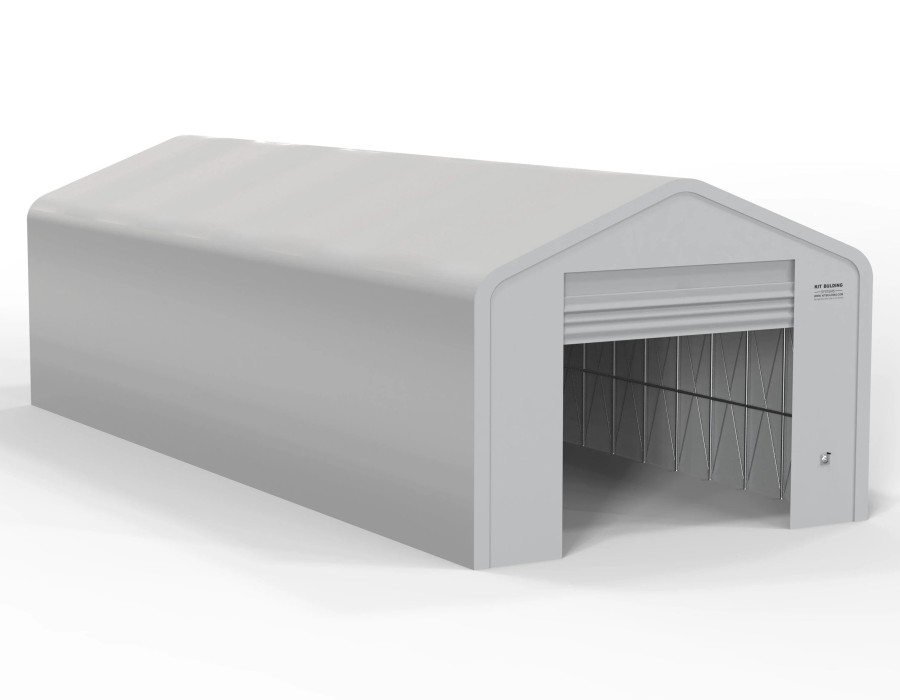In today’s fast-paced and ever-evolving world, flexibility and efficiency are paramount, especially in the construction industry. This is where portable building manufacturers play a transformative role. These manufacturers are leading a shift from traditional brick-and-mortar infrastructure to cost-effective, customizable, and eco-friendly alternatives. Whether it's for temporary offices, classrooms, storage units, or housing, portable buildings have become the go-to solution for many industries.
What Are Portable Buildings?
Portable buildings, also known as modular or relocatable structures, are prefabricated units designed for quick deployment and mobility. Unlike conventional buildings that are constructed entirely on-site, portable buildings are manufactured off-site in controlled environments. They are then transported and assembled where needed, minimizing construction time and reducing environmental impact.
The Rising Demand for Portable Structures
The demand for portable buildings has skyrocketed due to the growing need for adaptable and sustainable construction. Businesses, schools, healthcare facilities, and even government agencies are turning to these solutions to meet immediate space requirements without the hassle of prolonged construction timelines.
Events such as natural disasters, rapid urbanization, and population growth have also increased the reliance on portable structures. For example, during the COVID-19 pandemic, portable building manufacturers supplied isolation wards, testing centers, and temporary medical offices in record time.
What Portable Building Manufacturers Offer
Portable building manufacturers provide a wide range of products tailored to different sectors:
- Office Cabins: Perfect for construction sites, temporary projects, and remote operations.
- Classrooms: Schools and universities use portable classrooms to accommodate student overflow or to serve as interim solutions during renovations.
- Storage Units: Portable storage offers secure, movable space for equipment, documents, or inventory.
- Accommodation Units: Common in mining and oil industries, these include dormitories, kitchens, and sanitation facilities.
- Retail Spaces: Pop-up shops and mobile showrooms are becoming popular with businesses wanting a flexible presence.
Many manufacturers also offer customization options, such as insulation, HVAC systems, interior finishes, and eco-friendly materials, allowing customers to tailor buildings to their specific needs.
Key Benefits of Choosing Portable Building Manufacturers
- Speed of Delivery: One of the primary advantages of working with portable building manufacturers is rapid deployment. Since the majority of the construction happens off-site, it takes only a fraction of the time compared to traditional construction.
- Cost-Efficiency: Lower labor costs, minimal site preparation, and reduced construction time lead to significant savings. This makes portable buildings an attractive option for startups, NGOs, and organizations with tight budgets.
- Flexibility and Scalability: Portable buildings can be easily expanded, relocated, or repurposed. Need to move to a new site? Just disassemble and transport the building — no need to build from scratch.
- Eco-Friendly Construction: Modern portable building manufacturers focus on sustainability. By using recyclable materials, energy-efficient designs, and generating less construction waste, they offer an environmentally conscious alternative to traditional methods.
- Compliance and Safety: Reputable portable building manufacturers ensure that their structures comply with local building codes and safety regulations, providing peace of mind and long-term reliability.
How to Choose the Right Portable Building Manufacturer
When selecting a manufacturer, consider the following factors:
- Experience and Reputation: Look for manufacturers with a strong track record and positive client feedback.
- Customization Options: Ensure they can meet your specific requirements in terms of design, size, and functionality.
- Material Quality: High-quality materials ensure durability and long-term performance.
- After-Sales Service: A manufacturer that offers maintenance, relocation, or upgrade services adds extra value.
- Certifications: Compliance with ISO standards and local building regulations is a sign of a trustworthy manufacturer.
The Future of Portable Buildings
With increasing awareness of sustainable development and the need for agile infrastructure, the role of portable building manufacturers is only set to grow. Innovations such as smart buildings, energy-efficient modules, and 3D-printed components are already on the horizon, further improving the appeal and performance of portable structures.
Conclusion
Portable building manufacturers are at the forefront of modern construction innovation. They provide flexible, sustainable, and cost-effective building solutions across various sectors, revolutionizing the way we think about space and structure. As industries continue to prioritize adaptability and efficiency, portable buildings will become an even more integral part of our built environment.
Whether you’re expanding a business, responding to an emergency, or setting up a remote worksite, partnering with a reputable portable building manufacturer could be the smartest investment you make.





Comments